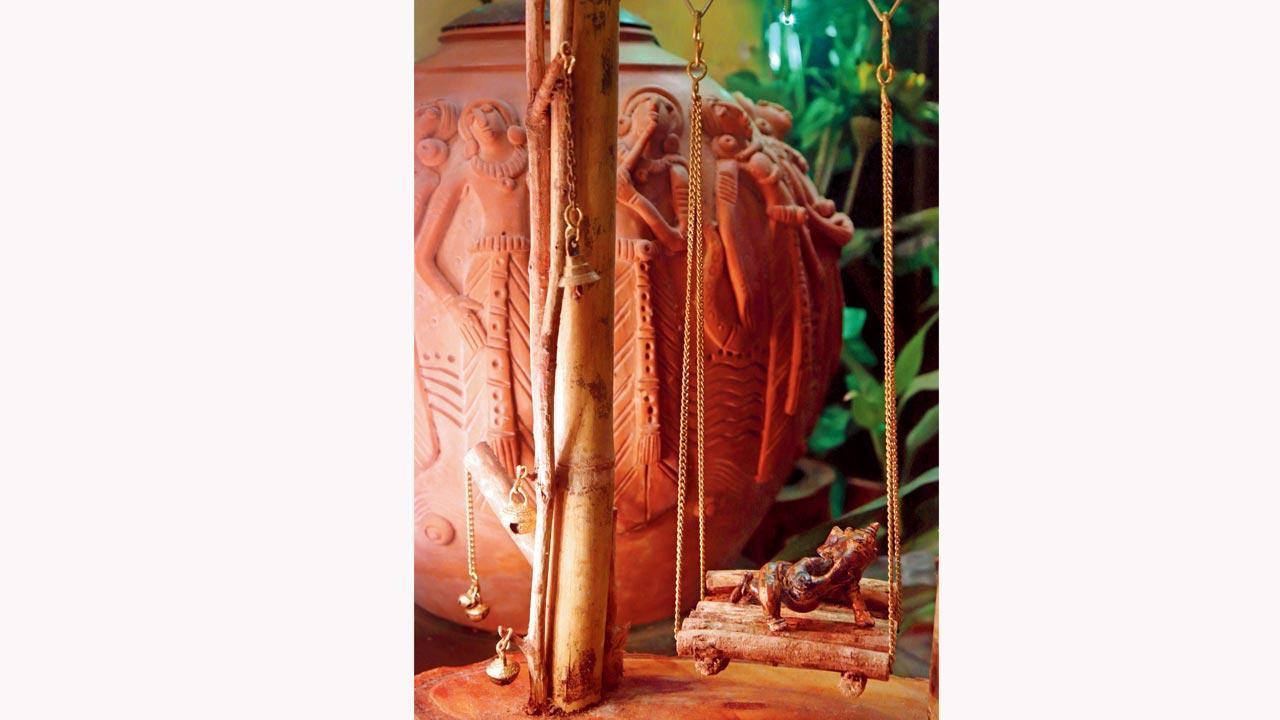Home / Sunday-mid-day / / Article /
This house in Lonavla is a treasure trove of Ganesha murtis
Updated On: 10 September, 2023 10:50 AM IST | Mumbai | Christalle Fernandes
In lush Lonavla, Rajkumar and Saroj Goel live amidst a museum of hand-made curiosities, including different types of Ganesh murtis. mid-day takes a tour

The newest addition to the Goel’s Ganesha collection is this Ganesha sitting on a swing
The first impression that takes over as we step into the hall of the Goels residence in Lonavla is awe. Aptly named Ram Kripa, the house was painstakingly built, almost brick-by-brick by Rajkumar Goel, whose many talents can be sheltered under the broad term of artist. But what strikes the eye first are the Ganeshas peeking out of every nook and cranny—some small enough to disappear inside your palm, others more self-assertive with their presence.
“It’s unbelievable how everything in this house has been built from scratch,” we compliment the Goels, to which Rajkumar replies, with a look of humility, “I can’t believe it either.”



